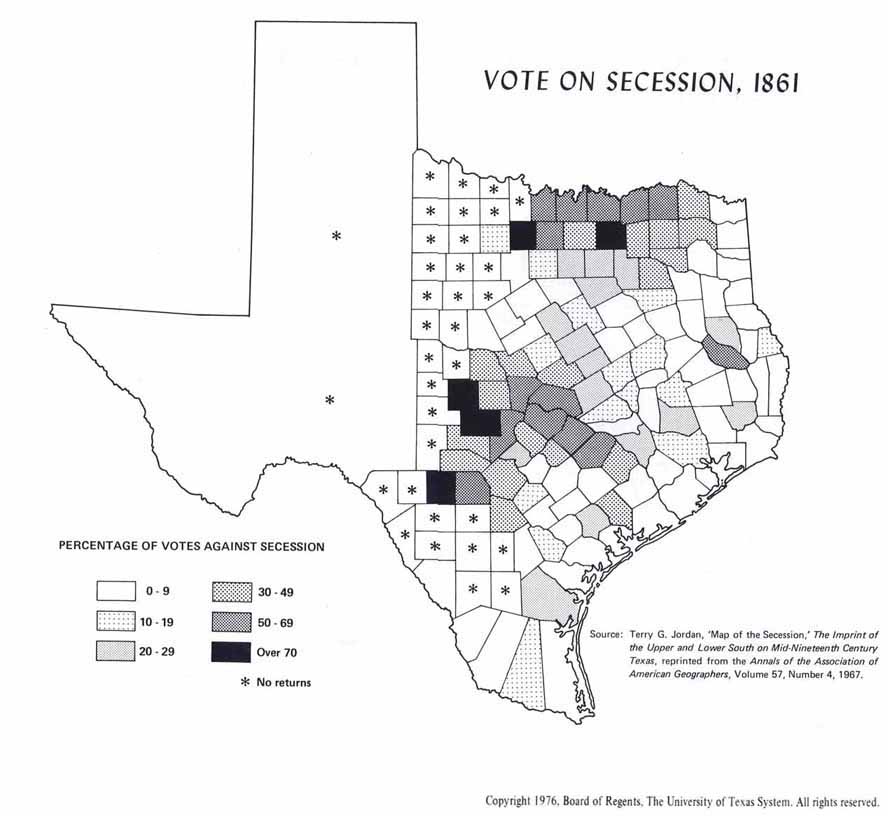There is an argument frequently made by neo-Confederate apologists which, as far as I can see, is never adequately challenged in the recurring debates about whether the Civil War was about slavery. Perhaps more should be done to shoot down this BS.
The argument seems to say that the CSA troops could not have been fighting for slavery since most of the boys in gray did not own slaves.
To turn the reasoning around, this argument seems predicated on the very questionable idea that anyone who approved of slavery would have gone on to buy himself a slave or two.
One southerner whose ancestors had fought for the CSA, with whom I debated on the Net, said angrily that his family in 1860 were dirt farmers who could not even have fed a slave if one had been given to them, and therefore his ancestor could not have been fighting for slavery.
It seems to me this argument is crap for a number of reasons.
First of all, we know how many slaves there were (about 4 million) but do we really know how many white households owned one or more slaves? Some estimates are as high as 40%, which means that slave-owners in the south were not exactly a tiny minority.
Secondly, even whites who did not own slaves had relatives and friends who did, so that “slave owners and their supporters” might well have been a majority of the population.
For example, Mark Twain’s father, a judge, appears to have only dabbled in slave ownership, but Twain’s uncle, on whose farm young Sam Clemens spent summers, had 20 slaves.
Twain fought for the Confederacy (albeit briefly) and later regretted that he had ever supported the cause of slavery. Interestingly, Twain does not use the modern excuses of wanting to defend states’ rights, or protesting some vague tariff, like today’s neo-Confeds do.
Regarding the support for the slave cause by poor whites who could never have afforded a slave, Twain says this:
…the “poor whites” of our South who were always despised, and frequently insulted, by the slave lords around them, and who owed their base condition simply to the presence of slavery in their midst, were yet pusillanimously ready to side with the slave lords in all political moves for the upholding and perpetuating of slavery, and did also finally shoulder their muskets and pour out their lives in an effort to prevent the destruction of that very institution which degraded them. And there was only one redeeming feature connected with that pitiful piece of history; and that was, that secretly the “poor white” did detest the slave lord, and did feel his own shame. That feeling was not brought to the surface, but the fact that it was there and could have been brought out, under favoring circumstances, was something–in fact it was enough; for it showed that a man is at bottom a man, after all, even if it doesn’t show on the outside.
- A Connecticut Yankee in King Arthur’s Court
Poor whites had been brainwashed into supporting slavery by a system of pro-slavery censorhip and info manipulation that had existed since at least 1840. Abolitionists were lynched, abolitionst pamphlets were kept out of the south by postmasters, and ministers of religion used the Bible to preach the God-given rightness of slavery. Luckily for them, the Bible contains abundant verses favouring human bondage. Anti-slavery ministers were quickly run out of the south.
It is probable that the vast majority of CSA soldiers in 1860 had never heard a single anti-slavery argument.
